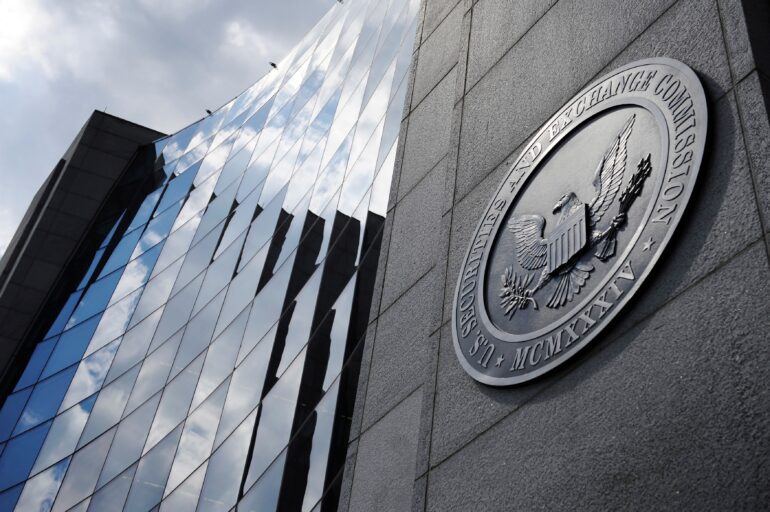TL;DR:
- The SEC is introducing new rules requiring publicly traded companies to disclose hacking incidents to help investors navigate cyber risks.
- Companies must report significant cyber breaches within four days if they are material to investors, with exceptions for national security or police investigations.
- Companies also need to describe their efforts to identify and manage cyber threats as part of the cybersecurity rule.
- The SEC is proposing AI regulations to address conflicts of interest in broker-dealers’ use of AI, influenced by the 2021 “meme stock” rally.
- The AI rule will require broker-dealers to neutralize conflicts when predictive data analytics prioritize their financial interests over clients.
- SEC Chair Gary Gensler is concerned about AI technology’s impact on financial stability.
- The SEC aims to protect investors and financial markets, making revisions based on public feedback.
Main AI News:
The US Securities and Exchange Commission (SEC) is taking significant steps to fortify the financial landscape against cyber threats and potential conflicts of interest in brokerage AI. As cyber attacks escalate in both scale and frequency, the SEC is set to implement a new rule compelling publicly traded companies to divulge hacking incidents, empowering investors with crucial information to navigate these risks effectively.
Under the proposed cybersecurity rule, companies will be obligated to disclose any significant cyber breaches within four days of their identification, if deemed material to investors. However, in cases where national security or police investigations necessitate delays, limited exceptions may be granted for disclosure timing.
Beyond merely reporting breaches, companies will be required to provide regular accounts of their ongoing efforts to identify and manage cyber threats proactively. This comprehensive cybersecurity rule is part of the SEC’s broader initiative to safeguard the financial system from data theft, system failures, and cyber intrusions that have plagued the modern digital landscape.
Concurrently, the SEC is unveiling a groundbreaking proposal designed to address potential conflicts of interest concerning the use of artificial intelligence (AI) by broker-dealers. The impetus for this proposal stems from the events of the 2021 “meme stock” rally, where robo-advisors and brokers employed AI and game-like features to drive trading activities. Should this proposal gain approval, it will mandate broker-dealers to neutralize any conflicts of interest arising from predictive data analytics that prioritizes the broker’s financial gains over the interests of their clients.
SEC Chair Gary Gensler has expressed serious concerns about the potential threats posed by AI technology to financial stability. As part of its comprehensive regulatory agenda, the SEC is also poised to issue a parallel proposal governing the use of AI by investment advisers, addressing the industry-wide implications of this transformative technology.
These progressive proposals underscore the SEC’s steadfast commitment to safeguarding investors and upholding the integrity of financial markets. The commission has attentively considered public feedback, leading to revisions in the initial proposal. For instance, the requirement for companies to disclose board members’ cybersecurity expertise has been removed, and the scope of information mandatorily disclosed has been narrowed.
Conclusion:
The SEC’s new cybersecurity rule and AI initiative signify a pivotal step towards strengthening the financial market’s resilience against cyber threats. By mandating timely disclosure of hacking incidents and addressing conflicts of interest in AI usage, the SEC aims to instill greater confidence in investors and ensure the integrity of financial systems. These proactive measures are likely to bolster market stability and reinforce investor protection, enhancing the overall robustness of the market in the digital era.

